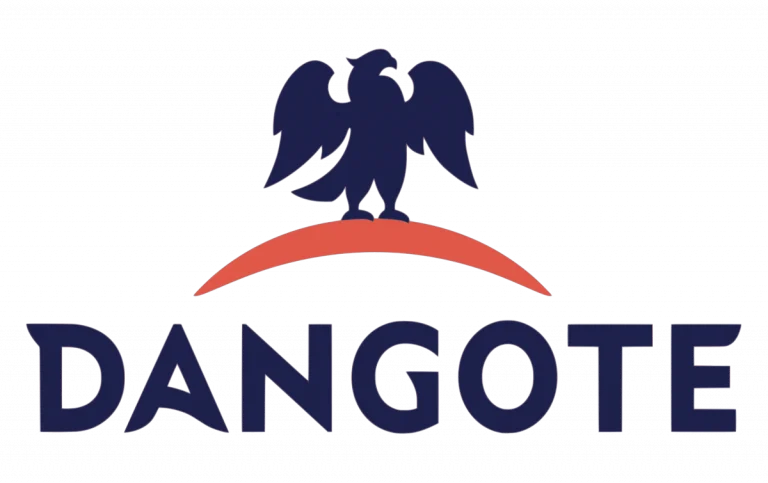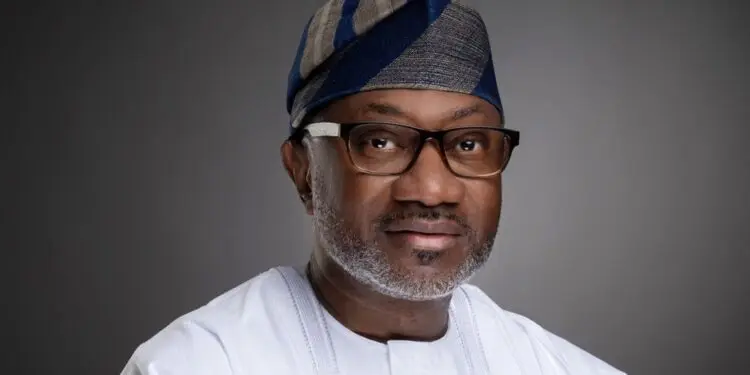Business
FG Rakes In N127.03bn Tax From Calls, SMS

The Federal Government made N127.03bn from Value Added Tax on calls, SMS, data, and other information and communication services in the first six month of the year.
This is 10.69 per cent of the total N1.19tn that was collected as VAT within the period under review according to data from the National Bureau of Statistics. The government charges 7.5 per cent for the consumption of telecommunication services.
Speaking on the contribution of the sector in the second quarter of 2022, the NBS said, “In terms of sectoral contributions, the top three largest shares in Q2 2022 were Manufacturing with 33.08 per cent; Information and communication with 18.98 per cent; and Mining & quarrying with 10.60 per cent.”
The information and communication sector comprises of the activities of telecommunications and information services; publishing; motion picture, sound recording and music production; and broadcasting according to the NBS’s grouping for Gross Domestic Report.
Telecoms is the largest subsector in the sector contributing about 80 per cent of the total sector’s contribution to GDP. The subsector contributed 76.29 per cent, and 79.49 per cent to the sector’s nominal and real GDP in the first half of 2022.
It contributed N4.84tn to the nation’s real GDP and N7.94tn to its nominal GDP. To calculate the sector’s contribution to the economy, the NBS considers, “Telecommunication and Information Services: Gross Output: revenue from telephone, telex, Facsimile, telegraph, and other income from satellite and internet services.
“Intermediate consumption: transit fees, operational expenditure, minor repairs and maintenance and other expenses. Publishing: Gross Output: revenue from publishing services.
“Intermediate consumption: This includes details of the cost structure including transportation fees, operational expenditure, minor repairs etc. Motion Picture and Sound Recording: Gross Output: revenue generated/total sales from the number of movies and sound recordings produced including revenue generated from TV rights, royalties and fees.
“Intermediate consumption: Detail on the cost structure of operating firms including transportation fees, operational expenditure, minor repairs and maintenance, and other administrative expenses. Broadcasting: Gross Output: public corporation data derived from Accountants General’s reports, while the private component relies on revenue generated from services rendered e.g. advertisement.
“Intermediate consumption: details of the cost structure of market participants which include transportation fees, operational expenditure, minor repairs and maintenance.”
READ ALSO: Brazil Fines Apple $2.4m, Prohibits Sale Of iPhone Without Charger
According to the government it aims to improve efforts aimed at improving VAT coverage and collection. Considering dwindling oil revenue, the government has increased efforts at increasing tax revenues. Despite contributing a chunk of VAT revenues, the government recently made moves to add a five per cent excise duty on telecom’s services which would have increased telecoms consumption tax to 12.5 per cent.
Although, the plan has been suspended, the Minister of Communications and Digital Economy, Isa Pantami, revealed that the sector pays a total of 41 taxes.
He said, “Excessive taxation has been a central challenge of the Information and Communications Technology sector.”
Business
NNPCL Announces Restoration Of Escravos-Lagos Pipeline

The Nigerian National Petroleum Company Limited (NNPCL) has announced the complete restoration of the Escravos-Lagos Pipeline System (ELPS) in Warri, Delta State, following the recent explosion on the asset.
The chief corporate communications officer (CCCO) of the nation’s oil company, Andy Odeh, in a statement, said that the pipeline is fully operational, reiterating the company’s resilience and commitment to energy security.
“NNPC Limited is pleased to announce the successful restoration of the Escravos-Lagos Pipeline System (ELPS) in Warri, Delta State.
READ ALSO:Fuel Price Cut: NNPCL GCEO Ojulari Reveals Biggest Beneficiaries
“Following the unexpected explosion on December 10, 2025, we immediately activated our emergency response, deployed coordinated containment measures, and worked tirelessly with multidisciplinary teams to ensure the damaged section was repaired, pressure-tested, and safely recommissioned.
“Today, the pipeline is fully operational, reaffirming our resilience and commitment to energy security. This achievement was made possible through the unwavering support of our host communities, the guidance of regulators, the vigilance of security agencies, and the dedication of our partners and staff.
“Together, we turned a challenging moment into a success story, restoring operations in record time while upholding the highest standards of safety and environmental stewardship.
“As we move forward, NNPC Limited remains steadfast in its pledge to protect our environment, safeguard our communities, and maintain the integrity and reliability of our assets. Thank you for your trust as we continue to power progress for Nigeria and beyond,” the statement read.
Business
Dangote Unveils 10-day Credit Facility For Petrol Station Owners

The Dangote Group has announced a 10-day credit facility backed by a bank guarantee for petrol station owners and dealers, alongside free direct delivery and other incentives, as part of a new supply arrangement.
The company disclosed this in a statement posted on its official X handle on Tuesday, inviting petrol station operators across the country to register to benefit from the offer.
According to the statement, participating dealers will enjoy “a 10-day credit facility backed by a bank guarantee,” with a minimum order requirement of 5,000 litres.
“Our free direct delivery service will commence soon,” the group said, adding that the offer is open to “all petrol station owners and dealers.”
READ ALSO:Dangote Sugar Announces South New CEO
The Dangote Group further called on operators to register their stations to access the supply arrangement.
“Register your petrol stations today to benefit from our competitive gantry price,” the statement read.
The company also disclosed that petrol supplied under the arrangement will be sold at a gantry price of ₦699 per litre.
For enquiries, the group provided the following contact numbers: 0802-347-0470, 0809-324-7070, 0809-324-7071 and 0203.
READ ALSO:Dangote Refinery Dispute: PENGASSAN Suspends Strike After FG Intervention
The announcement follows a recent petrol price adjustment by the Dangote Petroleum Refinery.
The PUNCH earlier reported that the refinery reduced its ex-depot petrol price from ₦828 to ₦699 per litre, representing a ₦129 cut or a 15.58 per cent reduction.
An official of the refinery, who spoke to PUNCH Online on condition of anonymity, confirmed the adjustment, saying, “The refinery has reduced petrol gantry price to ₦699 per litre.”
The new price reportedly took effect on December 11, 2025, marking the 20th petrol price adjustment announced by the refinery this year.
Business
JUST IN: Otedola Sells Shares In Geregu Power For N1trn

Billionaire businessman, Femi Otedola, has sold his majority stake in Geregu Power Plc for N1.088 trillion in a deal financed by a consortium of banks led by Zenith Bank Plc.
The Nigerian Exchange, NGX, made this announcement on Monday.
Otedola’s Amperion Power Distribution Company Ltd reportedly held nearly 80 percent of the power generating company.
READ ALSO:N200b Agric Credit Dispute: Appeal Court Slams NAIC, Upholds First Bank Victory
With this new development, Otedola, Chairman of First Holdco Ltd, parent company of First Bank of Nigeria Plc, will reportedly now concentrate on expanding his interest in the Nigerian banking sector, although he still retains some shares in Geregu.
Otedola is said to currently own 17.01 percent of First Bank — its single largest shareholder since the bank was established in 1894.

 Headline5 days ago
Headline5 days agoUS Dept Of War Shares Video Of Air Strikes In Nigeria

 News4 days ago
News4 days agoPHOTOS: SGF George Akume Weds Ooni’s Ex-Queen

 News3 days ago
News3 days agoEx-Edo Gov Obaseki Reacts As His Cousin Is Beaten, Stripped

 News2 days ago
News2 days agoBREAKING: Anthony Joshua Involved In Road Accident

 News5 days ago
News5 days agoShehu Sani Reacts To Trump’s Military Strikes In Nigeria

 News5 days ago
News5 days agoTrump’s Airstrikes: Halt Military Cooperation With US Immediately – Sheikh Gumi Tells Tinubu Govt

 Politics2 days ago
Politics2 days agoWike Speaks On Defecting To APC

 Headline5 days ago
Headline5 days agoU.S. Lawmaker Reacts To Nigeria, U.S. Airstrikes

 Politics2 days ago
Politics2 days agoJUST IN: INEC Excludes PDP From Ekiti Governorship Election

 Metro3 days ago
Metro3 days agoObaseki Beaten, Stripped In Edo
































